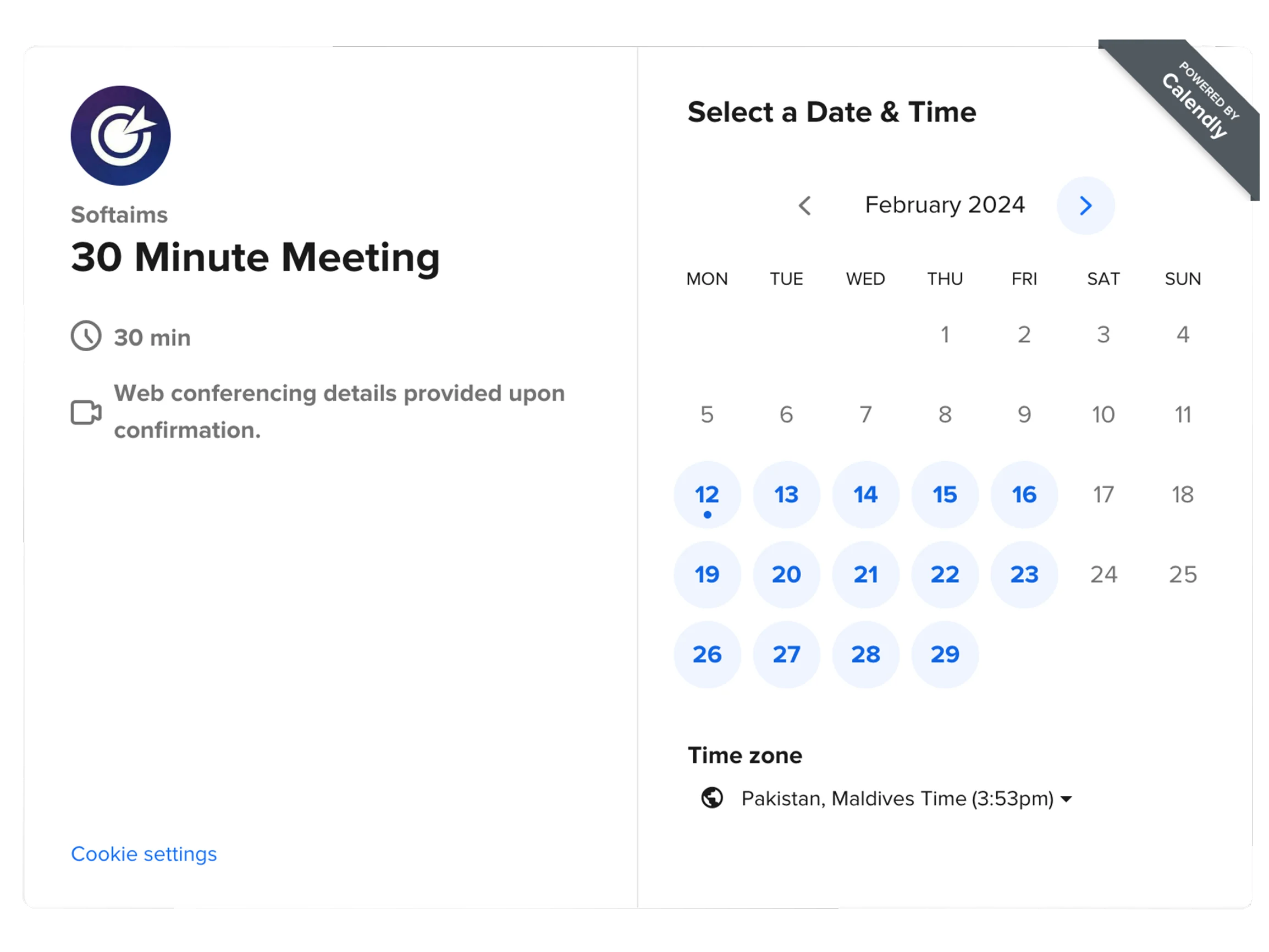The Ubiquitous Power of a JavaScript Developer
JavaScript is the undisputed language of the web, and a JavaScript developer is the architect of the interactive, dynamic, and engaging experiences that define modern internet use. They build everything from responsive front-end user interfaces to powerful server-side applications, making them one of the most versatile and in-demand roles in technology.

Hiring a skilled JavaScript developer is an investment in your entire web presence. Their ability to work across the full stack—from the user's browser to the server and the database—allows them to build cohesive and efficient applications, drive innovation, and bring complex digital products to life.
Modern JavaScript (ES6 and Beyond)
A proficient JavaScript developer must have a deep and practical command of the language's modern features, as defined by the ECMAScript standards (ES6 and later). This goes far beyond basic syntax and requires fluency in concepts like Promises, async/await for handling asynchronous operations, and the module system (import/export).
Furthermore, they should be experts at using features that lead to cleaner and more expressive code, such as arrow functions, destructuring assignment, template literals, and the spread/rest operators. A developer who writes idiomatic, modern JavaScript (e.g., const myFunc = async () => { ... }) is a developer who can build maintainable and efficient applications.
The Document Object Model (DOM)
At its core, front-end JavaScript is about interacting with the browser's Document Object Model (DOM). A strong candidate must have a complete understanding of the DOM, including how to select, create, and manipulate elements without relying on a library like jQuery. This includes expertise with methods like document.querySelector(), createElement(), and addEventListener().
This foundational knowledge is critical, even when using a modern framework like React or Vue, because it allows the developer to understand what is happening under the hood. It empowers them to debug complex UI issues, optimize rendering performance, and write more efficient components.
Asynchronous JavaScript and APIs
Modern web applications are all about data, and JavaScript is the language used to fetch and display it. A candidate must have a mastery of asynchronous JavaScript. They need to be experts at making API calls using the browser's native fetch API or a library like Axios to communicate with backend services.
This includes handling the entire lifecycle of a network request, from sending the request to managing loading and error states and finally updating the UI with the received data. A deep understanding of Promises and the async/await syntax is non-negotiable for writing clean and readable asynchronous code.
Front-End Frameworks and Libraries
While vanilla JavaScript skills are essential, the vast majority of modern front-end development is done with a framework or library. A professional JavaScript developer must have deep expertise in at least one of the major players: React, Angular, or Vue.js. This includes understanding component-based architecture and state management within that ecosystem.
They should be able to build complex, scalable single-page applications (SPAs), manage application state predictably, and handle client-side routing. Proficiency in a popular framework is often the key differentiator that makes a developer immediately productive on a modern development team.
Server-Side JavaScript with Node.js
JavaScript's utility extends far beyond the browser. A well-rounded JavaScript developer should have experience with server-side development using the Node.js runtime. This allows them to build the backend APIs and services that their front-end applications will consume, enabling a full-stack development workflow with a single language.
Key skills include building web servers with a framework like Express.js, interacting with databases, and managing dependencies with the npm ecosystem. This versatility makes them incredibly valuable, as they can contribute to any part of the application's codebase.
Build Tools and The Development Ecosystem
The modern JavaScript ecosystem relies on a rich set of development tools. A proficient developer must be comfortable working in this environment. This includes using a module bundler like Webpack or a modern build tool like Vite to process, optimize, and bundle their code for production.
They also need to be fluent in using the npm (or Yarn) package manager to handle project dependencies. Familiarity with linters like ESLint for code quality and transpilers like Babel for backward compatibility is also a standard part of the professional JavaScript developer's toolkit.
Testing and Quality Assurance
A commitment to writing high-quality software is demonstrated by a strong testing discipline. A professional JavaScript developer should be experienced in writing automated tests to ensure their code is reliable and bug-free. This includes writing unit tests for individual functions and integration or component tests for UI components.
They must have hands-on experience with a testing framework like Jest, which is popular for both front-end and back-end testing. The ability to write clear and meaningful tests, such as asserting that a component renders correctly after a state change, is crucial for building maintainable applications.
Web Performance and Optimization
The performance of a website has a direct impact on user experience and business metrics. A skilled JavaScript developer should have a strong mindset for performance optimization. This includes understanding how to minimize the amount of JavaScript that is sent to the browser, using techniques like code splitting and tree shaking.
They should also know how to write efficient code that avoids common performance bottlenecks, understand the browser's rendering path, and be able to use browser developer tools to profile and diagnose performance issues. This focus on speed is a key attribute of a senior-level developer.
Version Control with Git
All modern software development relies on version control. A JavaScript developer must be an expert with Git and a platform like GitHub or GitLab. They need to be comfortable with the entire development workflow, from creating branches for new features to submitting pull requests for code review.
A developer who writes clear commit messages, keeps their branches clean, and can confidently handle merges and resolve conflicts is a disciplined professional who can collaborate effectively with a team. Strong Git skills are a foundational requirement for any development role.
How Much Does It Cost to Hire a JavaScript Developer
The cost to hire a JavaScript developer can vary widely depending on their specialization (e.g., front-end, back-end, full-stack), their expertise in specific frameworks, their geographic location, and their years of experience. As the language that powers the web, JavaScript developers are in constant demand across all industries.
Salaries in major tech hubs across North America and Western Europe tend to be the highest. The following table provides an estimated average annual salary for a mid-level JavaScript developer to illustrate these global variations.
| Country |
Average Annual Salary (USD) |
| United States |
$118,000 |
| United Kingdom |
$78,000 |
| Germany |
$75,000 |
| Canada |
$88,000 |
| Australia |
$85,000 |
| Poland |
$52,000 |
| Ukraine |
$50,000 |
| India |
$35,000 |
| Brazil |
$45,000 |
| Netherlands |
$80,000 |
When to Hire Dedicated JavaScript Developers Versus Freelance JavaScript Developers
Hiring a dedicated, full-time JavaScript developer is the best choice for building and maintaining a core, long-term web application. A dedicated team member will gain a deep understanding of your product, your codebase, and your business goals, making them an invaluable asset for ongoing feature development, maintenance, and strategic planning.
Hiring a freelance JavaScript developer is a more tactical decision, perfect for short-term projects or specific tasks. This is an ideal model for building a landing page, creating a prototype, or getting expert help to implement a specific feature or fix a set of bugs. Freelancers offer flexibility and specialized skills on-demand without the long-term commitment of a full-time hire.
Why Do Companies Hire JavaScript Developers
Companies hire JavaScript developers because it is the only language that runs natively in every web browser, making it an essential and unavoidable technology for building websites and web applications. Its vast and mature ecosystem, including powerful frameworks like React and Node.js, allows developers to build rich, interactive, and complex applications with incredible speed.
Furthermore, JavaScript's ability to run on both the client and the server allows companies to build their entire technology stack with a single language. This unifies development teams, simplifies the hiring process, and allows for greater flexibility and code sharing. This versatility makes JavaScript one of the most cost-effective and powerful choices for any modern technology company.
In conclusion, hiring a top-tier JavaScript developer requires looking for a professional with a deep and modern understanding of the language itself, combined with practical expertise in its vast ecosystem of frameworks and tools. The ideal candidate will have mastered asynchronous programming and the DOM, and will be highly skilled in building and testing applications with a major framework. By prioritizing these skills, companies can build powerful teams capable of creating the dynamic, responsive, and innovative web experiences that users now expect.



































